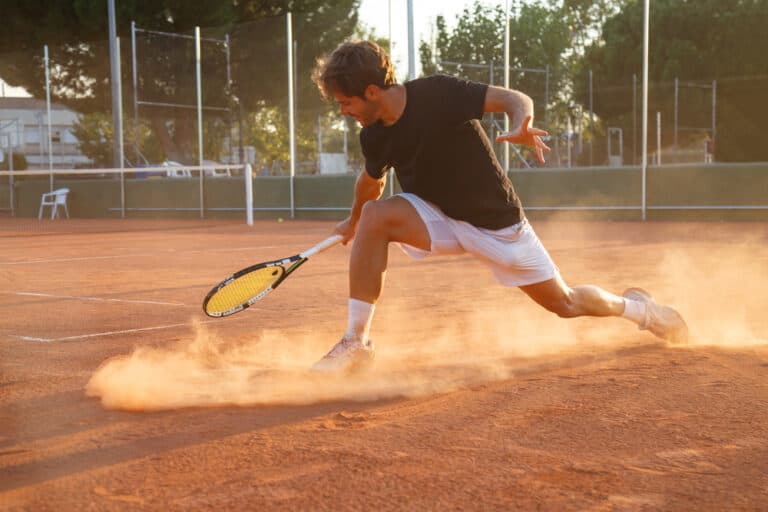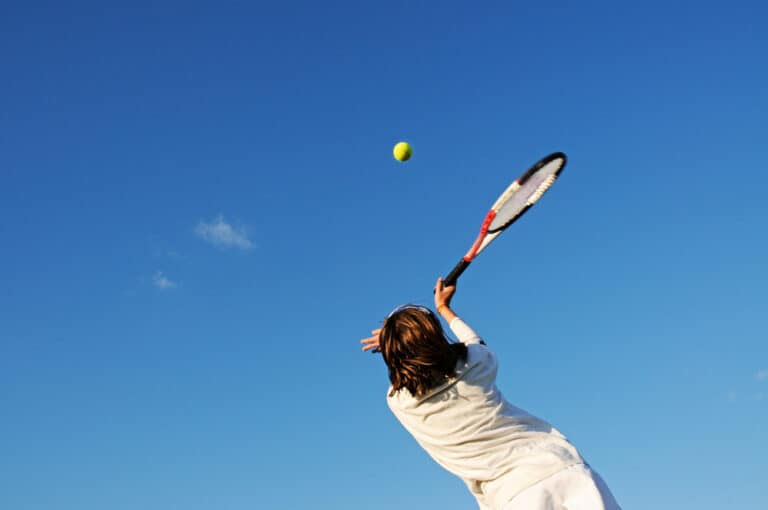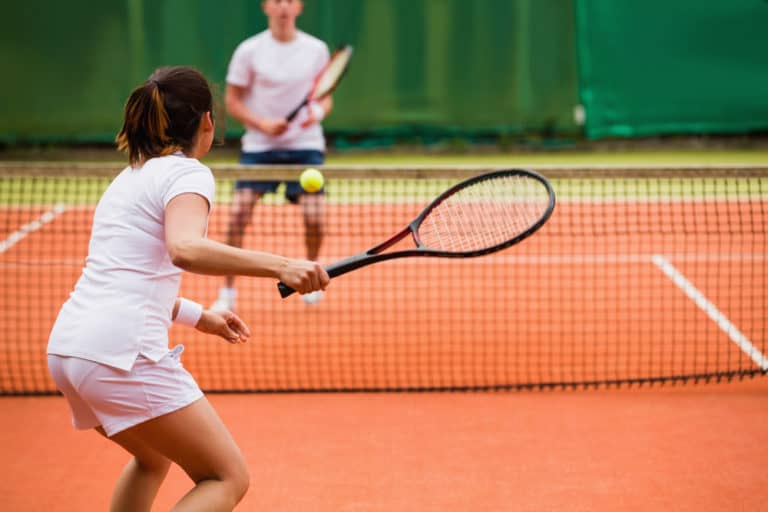Can You Call A Ball Out In Tennis Before It Hits The Ground?
Knowing the rules of the sports you enjoy watching or playing is an integral part of that sport’s appeal and culture. It can also be very embarrassing to break a rule you didn’t know about beforehand. Since tennis is a ball sport and players can become quite vocal, you might be wondering if you can call a ball out before it hits the ground.
You can call a ball out in tennis before it hits the ground. Though there is technically no rule against this practice, it is considered bad etiquette, and though you should call a shot before the opponent has the opportunity to return, it is best to be sure it is out.
When it comes to calling a ball out before it hits the ground, there are a couple of different scenarios that you should consider. The first thing to consider is etiquette, but you also need to think about the type of match you’re playing, the match’s pace, and how making that call can make you look.
The Rules To Follow When Calling A Ball Out
Before talking about whether you can call a ball out before it hits the ground, there are a lot of rules that you need to know. Most experienced players will know these rules, but for newer players, or if you are unsure, I have listed them below. Be sure to read through the rules properly to avoid embarrassment and needless mistakes.
Who Makes The Call?
If you are in a professional or observed match, making the final decision will fall on the court officials. However, if there are no court officials, the job will need to be handled by the players in the match.
You are only allowed to make a call over a ball on your side of the tennis court, and spectators should never call a ball out.
When Should You Call A Ball Out?
For the game’s sake and to avoid frustration and other complications, you should call a ball out as soon as you can after it has hit the ground. If you or your opponent continue to play an ” out ball,” the play counts as “good,” the match will continue, and that possible point will be forfeit.
To ensure a fair game and ensure that there is as little aguing as possible, it is best to call a ball as soon as possible.
Who Gets The Favor
If a ball is called out, the opponent to the person who made the call will have the benefit and favor. This rule is in place to ensure there are fewer complications. For this reason, calling a ball out when it is not can harm your match and can lose you a point.
Ultimately, calling a ball out when it is not a clear-cut decision is essential and risky. If you do not make a call, you can lose the point. However, if your call is wrong, and especially since your opponent has the favor in this case, you could lose the point even if you make the call.
Can You Call A Ball Out Before It Hits The Ground?
As you can see from the rules discussed above, the question is more complicated than you might initially think it is. Yes, you can call a ball out before it hits the ground, but you should only ever do that if you are 100% sure that the call will be in your favor.
Since calling a ball out can result in you losing a point, the decision to call a ball out is not always an easy one to make. If you call a ball out prior to it hitting the ground and it ends up touching the line ever so slightly, you will lose the point as the ball is in and safe.
If you value your reputation and the game’s etiquette, you should also consider not calling a ball out before it hits the ground. Making a call that a ball is out before it hits the court’s ground can make you seem desperate to win a point and harm your reputation if your call is wrong. Making this call is also considered a very unprofessional thing to do.
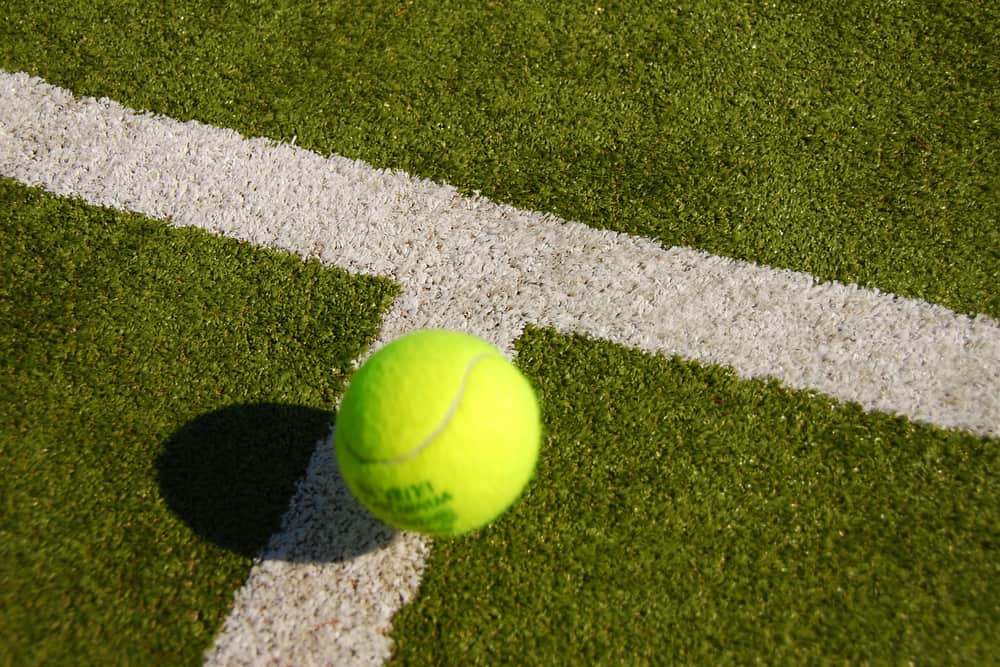
Can You Play A Ball After Calling It Out
If you are curious about calling a ball out before it lands, you might be interested in knowing whether or not you can still play a ball that you have called out. The reality of the question is that you can indeed do this.
If you are in the middle of a match and make a bad call, you can continue to play the ball after the lousy call as long as that ball is still in play. The fact that you can still play a ball after a bad call allows you to correct yourself to a certain extent and can be very useful if you expect a ball to be out that ends up being safe.
If a ball gets called out before it hits the ground, you might still be able to hold or retract your call if the ball is safe and you can play it in time. As you can see in the rules I discussed earlier, if a ball that is out is kept in play, it is not seen as a possible point. For this reason, you should not play a ball if it is out, as you will forfeit that point.
If you make a call on a ball that is still traveling, it is best to stay in the range of that ball to ensure that you can still return it if your call ends up being unwarranted. However, even if you retract your call by playing a ball you thought would be out, you can still influence your reputation if you make a call in a way that is not true to tennis etiquette.
It is also essential that you keep in mind that the ball does not always end up where you predict it. With many factors to consider, such as weather, it is not the most uncommon thing for a ball to change direction and stay in play even though it would have been out originally. It has even happened that a ball accidentally hits the net’s post and is considered good to continue in play.
Conclusion
You can call a ball out in tennis before it hits the ground. However, the question most of us should be asking is if you should. There are reasons why making this call can be beneficial, but there are also reasons why it can be detrimental to your match. Even if you make a call like this, it is best to ensure that you stay in the range of the shot until it hits the ground to avoid any nasty surprises.
References
- https://tt.tennis-warehouse.com/index.php?threads/what-is-the-ruling-on-calling-a-ball-out-before-it-hits-the-ground.160334/
- https://www.quora.com/In-tennis-how-long-do-you-have-to-call-the-ball-out-after-it-lands-1
- https://www.usta.com/content/dam/usta/pdfs/2015_Code.pdf
- https://memrlta.org.au/tennis-rules-and-etiquette
